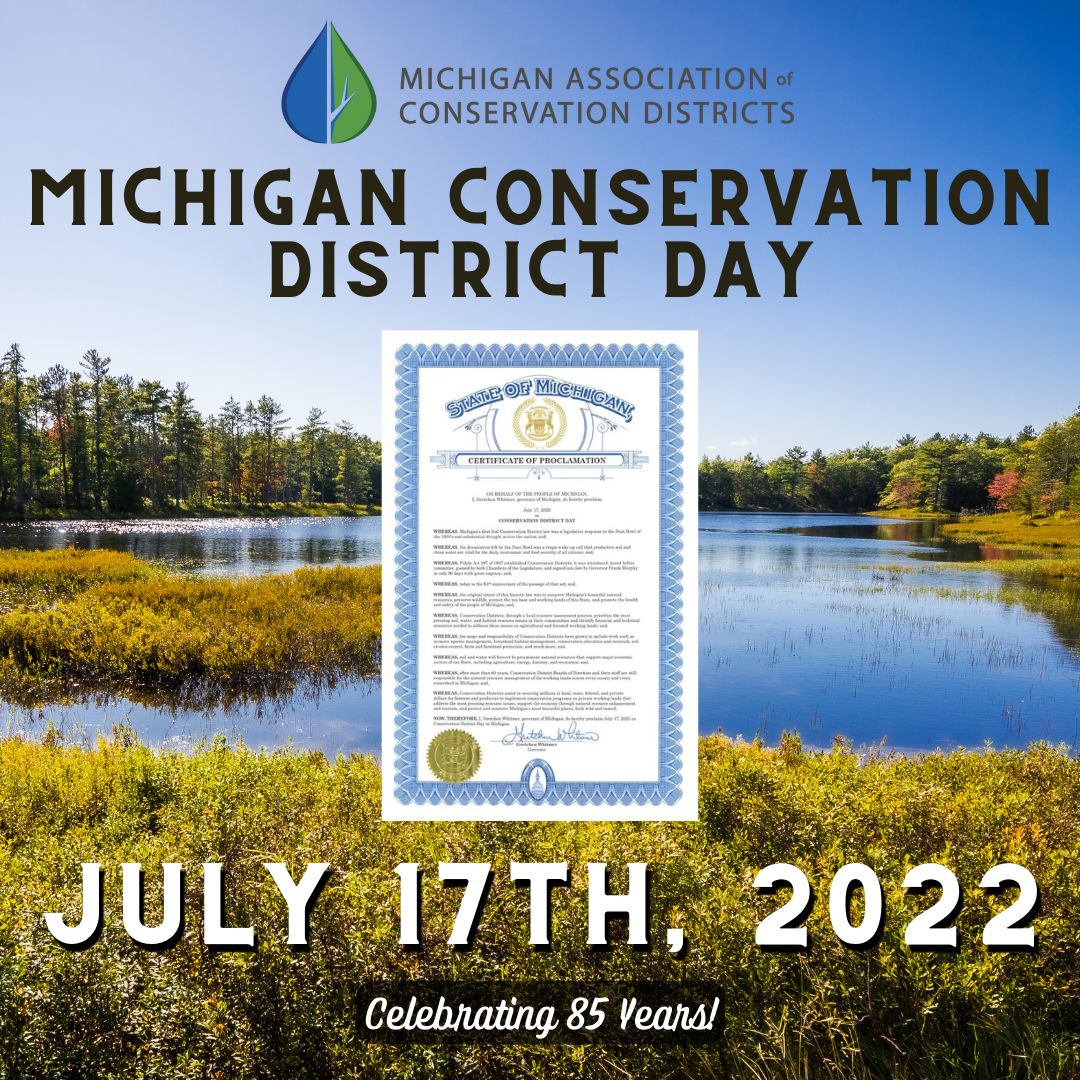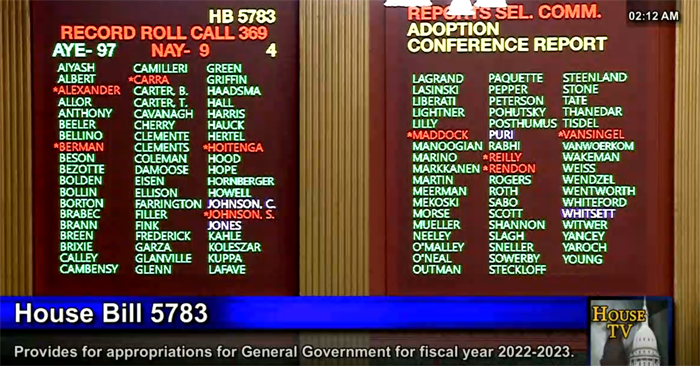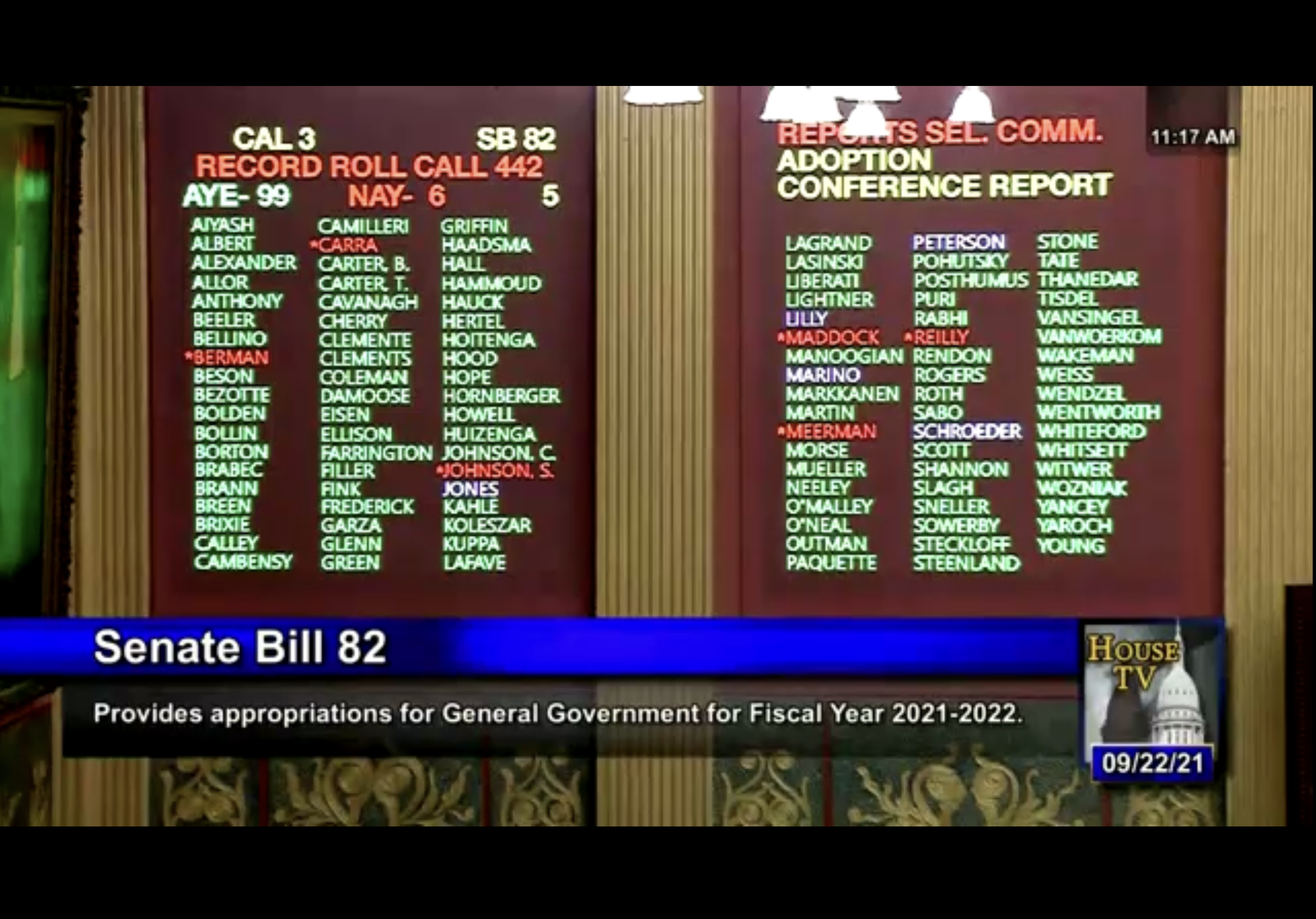Governor Whitmer Declares July 17th, 2022 as "Conservation District Day"

This year marks the 85th Anniversary of the bill's passage. Michigan’s first Soil Conservation District law was a legislative response to the Dust Bowl of the 1930s and substantial drought across the nation. The devastation left by the Dust Bowl was a tragic wake-up call that productive soil and clean water are vital for the daily sustenance and food security of all residents.
The bill was introduced, heard before committee, passed by both Chambers of the Legislature, and signed into law by Governor Frank Murphy in only 96 days with great urgency. The original intent of this historic law was to conserve Michigan’s bountiful natural resources, preserve wildlife, protect the tax base and working lands of this state, and promote the health and safety of the people of Michigan.
"Today, we recognize a monumental anniversary for our State, as we celebrate 85 years of Conservation Districts in Michigan," Dan Moilanen, Executive Director of the Michigan Association of Conservation Districts, expressed in a written statement.
"In the 1930s, the threat of soil erosion presented an ecological existential threat to the health and well-being of Americans," Dan added. "Today, with the many ecological challenges and threats we face, it is important to remember this dire period of American history and the lasting legacy of our government's response."
"Climate change, algal blooms, and other critical environmental issues are being addressed by our nation's Conservation Districts. It is precisely through the relationships our district staff members build with landowners and farmers where we are uniquely positioned to take these challenges head on."
Governor Whitmer's proclamation recognizes that, "Conservation Districts, through a local resource assessment process, prioritize the most pressing soil, water, and habitat resource issues in their communities and identify financial and technical resources needed to address those issues on agricultural and forested working lands"
"The scope and responsibility of Conservation Districts have grown to include work such as invasive species management, forestland habitat management, conservation education and outreach, soil erosion control, farm and farmland protection, and much more"
"Soil and water will forever be preeminent natural resources that support major economic sectors of our state, including agriculture, energy, forestry, and recreation."
For 85 years, Conservation District Boards of Directors and their staff have contributed to the natural resource management of working lands across every county and every watershed in Michigan.
Conservation Districts assist in securing millions in local, state, federal, and private dollars for farmers and producers to implement conservation programs on private working lands that address the most pressing resource issues, support the economy through natural resource enhancement and tourism, and protect and conserve Michigan’s most beautiful places.
The Michigan Association of Conservation Districts expresses our deep gratitude and appreciation to Governor Whitmer for recognizing the critical work our members do to protect and manage Michigan's natural resources by declaring July 17th, 2022 as "Conservation District Day."









